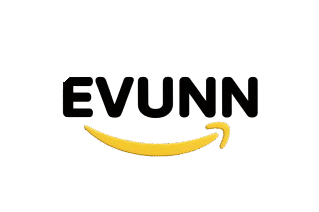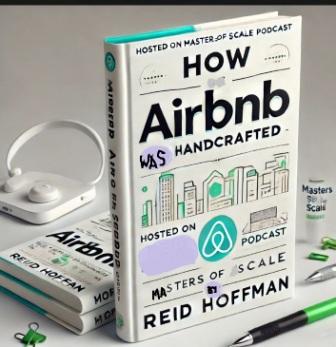Podcast Notes: Masters of Scale Handcrafted Review
Ever wonder how a tiny startup with air mattresses in a living room became one of the biggest travel companies in the world?
It wasn’t luck. It was handcrafted.
In this unforgettable episode of Masters of Scale, Airbnb co-founder Brian Chesky spills the secrets of their early days—the scrappy hustle, the endless customer calls, and the “no detail is too small” approach that turned sceptics into super-fans.
This isn’t just a podcast episode; it’s a masterclass in getting up close and personal with your customers and turning their feedback into magic.
If you’ve ever dreamed of building something extraordinary, trust me—you need to read this.
Dive in, soak up the lessons, and who knows? You might just uncover the blueprint for your next big idea.
About Masters of Scale
Masters of Scale is a podcast hosted by Reid Hoffman – the legendary Silicon Valley entrepreneur and investor (Co-founder of Linked) which explains how founders take their companies from zero to gazillion.
How to design products that sell, From idea to launch and then scale

At the heart of this captivating narrative lies the profound understanding that success is not merely about building a product or service, but about crafting an experience that resonates deeply with users.
Chesky’s revelation that “if you want to create something that’s truly new, you have to pull the future forward” serves as a guiding beacon for aspiring entrepreneurs, urging them to embrace disruption and challenge the status quo.
In order to scale, you have to first do things that don’t scale
Brian Chesky Tweet
About AirBnB
The company at the centre of this episode is AirBnB. AirBnB is the short form of Airbedandbreakfast.com.
AirBnB is based in San Francisco California and operates an online marketplace focused on short term home stays and trip experiences.
The company acts as a broker and collects commissions from each booking.
They are in the end to end business of travelling.
AirBnB was founded in 2008 by Brian Chesky, Nathan Blecharczyk and Joe Gebbia with Chesky as its CEO.
AirBnB is valued at $113B as at 2021

Want to Start Making Consistent Sales in Your Business?
Gain access to our FREE customer acquisition guide
Explanation of some words used in Masters of Scale Podcast:
Scale – Scaling does not mean to grow. It means to grow exponentially. A company is said to have achieved growth when it adds new resources (capital, people or technology) and its revenue increases as a result.
For a company to achieve growth, it must spend money on adding new resources. A business is said to have achieved scale when revenue increases without a substantial increase in resources if any at all.
Let’s hear from Brian Chesky of AirBnB on Handcrafting a product
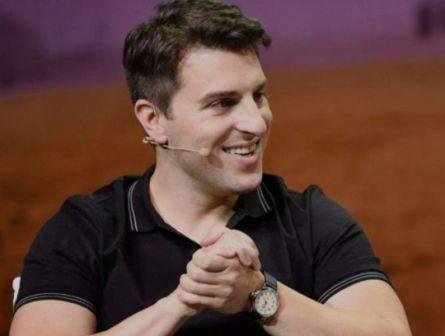
In order to scale, you have to first do things that don’t scale. The only way an organization or a business would scale is to start with doing things that don’t scale at all like handcrafting the whole process (doing everything with hands or manually.)
Reid Hoffman has worked with and invested in companies that scaled to 100m users or more.
He said, “when you are just starting, you don’t start with 100m users. You start with a few. So, stop thinking big and start thinking small. Reach out to your customers and win them over one by one”
This may sound odd if you are an entrepreneur with a global ambition.
For example, Mark Zuckerberg did not build Facebook, invite 1.1 billion people to Facebook and users just poured in. That’s not how it happened. Here is how it works.
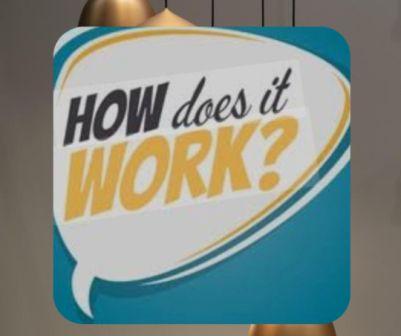
Here is how it works
When designing a product, you have to put yourself in the shoes of the user you are designing the product for.
You must design your product with empathy for a single user. Imagine being your product’s user. Put yourself in her shoes.
If you are designing your product with only A/B test, you are not designing with empathy.
Most times, startups are thinking how to grow big from day one. They have promised the investor millions and millions of users and they need to deliver.
They start from the end instead of starting from the beginning and going upwards. It’s like building a skyscraper on a faulty foundation.
Brian goes further to say, “You have to handcraft the user experience before you scale”.
The foundation is the user experience. It’s the user experience you handcrafted that you scale to reach more people.
Once you start having a few users, go to your users or customers one by one, try to know them.
Going to the users one by one is not scalable, but it’s highly necessary if you plan to scale. This is the only time you have to do this because once you scale your product; you won’t have the time to go to them.
So, now that you are small, go to your customers, get to know them, what they want and create the product for them.
When AirBnB was having little traction or a few users of their marketplace, they visited their customers at home one by one and offered to professionally photograph their homes and list it for them.
This became AirBnB’s secret weapon because that’s how they learnt what people (their users) loved.
It’s not easy to get 10 people to love anything, but it’s not hard when you spend time with them and find out what they really want.
You get to ask questions like, what if I do this or that.
From the answers to these questions, a handcrafted experience is born.
For example, AirBnB while asking these kind of questions, they found out “ what if I am not comfortable with the guest? So, they provided a solution by profiling the guests. They also found out what the users would love to be in the profile. They wanted the names, photos of the guests, where they live and work etc.
This kind of information helps you to start designing the product touch point by touch point.
The road map always exists in the minds of the users you design the product for.
Let the user show you the road map in their minds for your product.
You can get very detailed feedback from your early users.
Recommended: Summary of The Empire of Business by Andrew Carnegie
What are users saying about your product?

According to Brian Chesky, “if you are not getting people who are saying, ‘this is super important to me, I love this, I will really love this to work;’ it usually means you are off track and you need to go back to the drawing board”
Passionate feedback is a clue that your product really matters to someone and one passionate user can turn into many if you listen to them carefully.
It’s important to get this kind of feedback early. It’s like setting the foundation as an architect. You should not build a skyscraper before building a solid foundation. User feedback makes sure you don’t build 1000 users on unstable swamp.
How to get the right feedback
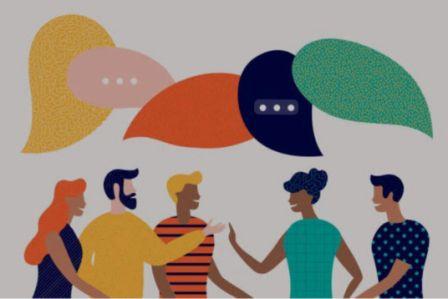
To get the right feedback from users, this is what Brian does:
- He does not ask for the product he just built, he asks for the product of your dreams. He asks these kind of questions:
What could we do not to make this product better, but to make you tell everyone about it? The answer to this question is different. It makes you to think “what will it take me to design a product that you will literally tell everyone about.”
Listen to user’s feedback, but the caveat is, you have to know which of your users to listen to.
You have to be able to know which users will take you in the right direction (mass market and your vision).
If you want to create something that would go viral, you must create a mind blowing end to end experience that people would like to tell everyone about.
AirBnB took one part of their product and created a five star experience and people went crazy.
If you want to create something that would go viral, you must create a mind blowing end to end experience that people would like to tell everyone about.
Two steps to create a perfect product
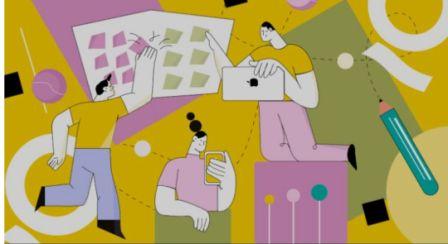
According to Brian Chesky, to create a perfect product, do these:
- Create a perfect experience
- Then scale that experience
AirBnB did not guess what the users want; they reacted to what the users wanted and asked for and then made a piece meal progress.
They didn’t launch perfectly scaled services. They built everything by hand and then scaled it with the right technology, processes, people, and partners.
Once a startup has proven that it has a product that people want, (product market fit) it’s time to take that product to the masses.
The crude art of doing things that don’t scale is a way to start a successful business on string budget and it also gives inspiration to your team to create the right product.
How to move from the handcrafted stage to the scaling stage
Handcrafting a product is one of the most creative times for founders. Brain says,” the transition from the handcrafting stage to the scaling stage is very challenging.
In fact, it needs two opposing mindsets. You can’t switch from one to the other with ease.”
You have to be able to empathize with a single user and at the same time, worry about everyone (mass market).
The designing phase is done with another side of the brain than the scaling experience. You need different skill sets for each. The designing experience is creative, intuition based, human and end to end experience. It’s more like writing.
The scaling phase is more analytical. It’s like being an editor. You do a lot of pruning. You prune, compact and distil so you can now run at a rocket ship rate. You focus on the 20% of users to get the 80%.
You transition your product to scale the organization to run it. All you need is a simple plan and little proposition.
Designing an ideal experience does not drop away as soon as your product goes viral. Handcrafting a product is a kind of booster that helps you get in the orbit, but it’s not the kind of rocket for the whole trajectory.
Handcrafting gets you out of the gravity well and after that, get ready for the main work.
Sharper founders never throw away the handcrafted mindset no matter how big their organization becomes.
As a founder, you need to be careful which part of the organization to scale and you must protect the handcrafting of new things in your company because the natural reaction of a scaled organization is to kill it (handcrafted products) because they would believe that they won’t be able to get it to scale.
How to re-invent or disrupt an industry

To re-invent an industry, you do not take inspiration from that industry. You need to look at other industries that have what you want to add to your industry.
For them at AirBnB, they got inspiration from the end to end travel experience portrayed in the cinema industry. “The best trips you have ever seen, is the trips that movie characters have,” says Brian
Brian wanted to create and scale a perfect trip. To do that, he switched back to creating a perfect trip for one individual.
He designed an end to end travel experience for one person who was wowed and that became a blue print for them.
Next, he asked his team,” can we develop the technology to replicate it 100m times?
Now he switches to the analytical mindset to scale the product.
They started with a small group of users and used years to figure out how to scale that experience. This has led to what is called the AirBnB Trips.
The less your products changes, the bigger you will get. So, you have time when you are small to make all the changes you need.
Take advantage of the sub scale experience to design a perfect experience.
Dream big, act small. Be passionate about your users, handcraft the core service for them, create a magical experience and then figure out what part of that magical experience you can scale.
Create a wow or 5 star experience for one user and then look for the technology to scale it to the mass market.
Take advantage of the sub scale experience to design a perfect experience.
Conclusion
In conclusion, the Masters of Scale Handcrafted review featuring Brian Chesky of Airbnb offers a masterclass in entrepreneurial prowess.
Chesky’s profound insights into the delicate balance between handcrafting a product and scaling it to global proportions shows that this is doable as long as you focus on the end users of your product.
As he aptly puts it, “the key lies in crafting an experience that is deeply rooted in authenticity and human connection, while simultaneously harnessing the power of scale to amplify its impact”.
